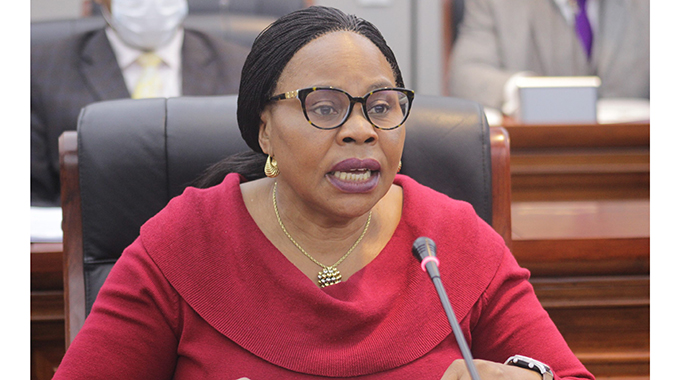Cabinet approves Procurement Act amendment principles

Thupeyo Muleya Beitbridge Bureau
Cabinet has approved the proposed principles for the Amendment of the Public Procurement and Disposal of Assets Act, Chapter 22:23, and directed that a bill be drafted to that effect.
Among other things, the amendments will provide for the control and regulation of public procurement and disposal of public assets to ensure that it is transparent, fair, honest, cost-effective and competitive.
In addition, the stand-still period whereby procuring entities were not allowed to do anything for 14 days to allow for the challenging of the award, will be reduced to seven days.
It is envisaged that the latest amendments will facilitate the expeditious delivery of supplies, shorten the procurement cycle and ensure speedy project implementation.
Minister of Information, Publicity and Broadcasting Services, Senator Monica Mutsvangwa, told the media on Wednesday that the amendments were accepted by Cabinet as presented by Vice President and Minister of Health and Child Care, Dr Constantino Chiwenga.
She said the Act, in its current form, did not sufficiently provide for capacity building of staff employed in public procurement roles, and hence the often unsatisfactory compliance which undermines the integrity of public procurement processes.
“State enterprises and parastatals operating in competitive sectors and markets have also been placed at a disadvantage when compared to their private-sector competitors because of inherent inefficiencies,” said Minister Mutsvangwa.
“Accordingly, the Cabinet agreed that the Auditor General be excluded from the membership of the Special Procurement Oversight Committee.
“This is because one of the Auditor General’s functions in terms of section 309 of the Constitution is to audit the accounts, financial systems, and financial management of all departments, institutions and agencies of Government, as well as provincial and metropolitan councils and all local authorities.”
Minister Mutsvangwa said Cabinet agreed that the Chief Executive Officer should not serve as secretary to the Board of the State Procurement Oversight Committee.
The Board, she said, should instead appoint a suitably qualified, competent, and experienced Company Secretary capable of maintaining a professional relationship with members of the Board.
She said the amended Act will also provide for innovation and technological advancements in pursuit of international best practices.
“Furthermore, the wording of the original Act makes it optional rather than mandatory for procuring entities to accord preferential treatment to domestic service providers by all procuring entities,” said Minister Mutsvangwa.
“With respect to the procurement of construction works, the Act will now make it mandatory for foreign suppliers to engage local contractors and to also promote technology and skills transfer.”
Minister Mutsvangwa said Cabinet noted there had a loophole in the current Act in terms of disposal of assets to employees, which leaves room for close family members to manipulate the disposal of public assets.
Accordingly, persons meeting the definition of “close family members” will now be disqualified from procuring public assets being disposed of, in order to promote fairness.
Minister Mutsvangwa said as part of the new changes, quotas should be given to women, war veterans, youths and people with disabilities, and other disadvantaged groups. @tupeyo









Comments